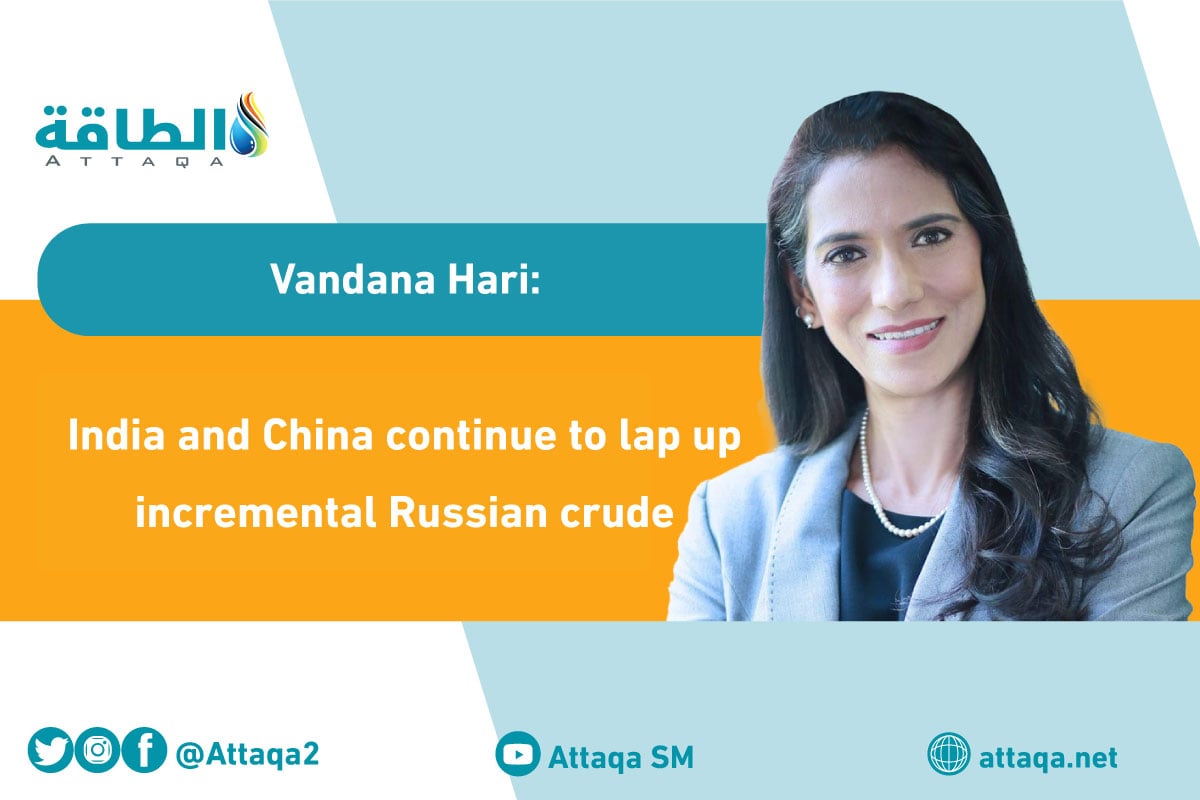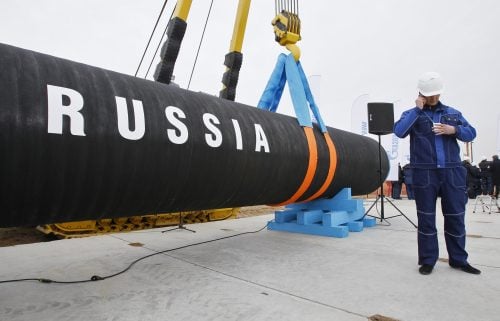A price ceiling on Russian oil would not solve energy problems (Article)
Vandana Hari

Crude oil remained in the clutches of persistent recessionary fears last week, a state facilitated by an easing of worries on the supply front, especially as Russia is finding new outlets for its crude as well as refined products more easily than was initially expected.
India and China continue to lap up incremental Russian crude, while Russian fuel oil has been making its way into the Middle East to be used for power generation and for potential blending to marine fuel specifications before being re-exported. Brazil is lapping up Russian diesel, while Cuba is picking up fuel oil as feedstock for its power plants.
Brent and WTI futures finally sank into bear territory and hit fresh three-month lows below the psychological $100/barrel mark at Thursday’s settle.
Continuing a pattern from the previous bouts of sell-off in recent weeks, they had bounced up on Friday, but only to reclaim a fraction of the losses.
Unless there is a major supply outage to shift attention back from an uncertain future to the here-and-now of a precarious global oil market balance, crude prices could remain in a sawtooth trajectory — rapid, sharp falls alternating with gradual and small recoveries.
Scorching US inflation unnerves investors
It was the US’ hotter-than-expected consumer inflation number of 9.1% and a near-record producer price index reading of 11.3% for June that sparked off a fresh tailspin in risk assets last week, and crude was dragged along for the ride.

The data prompted investors to start baking in a historic interest rate hike of 100 basis points by the US Federal Reserve at its next policy meeting on July 26-27 and US stock markets tumbled.
The problem with crude mimicking every bout of panicky sell-off in other risk assets is two-fold.
First, a fair assessment of crude prices needs to factor in market fundamentals, which at this time cannot be dominated by demand alone because of the tightness and risk factors in supply.
A price dive produced by fear and herd mentality becomes no more than a point in a volatile zig-zag motion, on a long and possibly torturous path towards a new equilibrium point.
Second, inflation data looks in the rear-view mirror. With prices of a range of industrial and agricultural commodities crumbling and consumers starting to rein in spending, at some point, the Fed and the broader financial markets will need to start factoring in the implications of a potentially rapid easing of price pressures.
The oil market will need to weigh the impact of prices well below the year’s highs (crude close to $100 instead of $130) restoring some momentum in demand recovery. We could be in for a long and difficult period of price recalibration.
US pushes price cap idea against all odds
US Treasury Secretary Janet Yellen used her trip to Asia last week to try and drum up support for a buyers’ club to impose a price cap on Russian oil, but did not manage any firm commitments, especially from the two major importers in the region, China and India.
While in theory it should be in all importing countries’ interest to sign up for a system that artificially drives down their Russian crude import costs, it is worth remembering that commercial considerations would not be the sole driver of the responses from Beijing and New Delhi.
The decisions are highly political and would have to align with China’s continued support for the Kremlin and India’s determination to remain neutral over the war in Ukraine.
The prospect of Moscow retaliating by slashing production and causing a fresh price spike also lurks on the sidelines. If that happens, the cap may need to be rolled back in a hurry.
Right now, much of the plan lives in theory and it did not look like the technical details of how it will work were ready for discussion in Yellen’s talks with the Asian leaders.
China sees it as a “very complicated issue,” a commerce ministry spokeswoman in Beijing said on Thursday, in a briefing on Yellen’s virtual meeting with Vice-Premier Liu He the previous week.
The US had brought up the price cap proposal the meeting, but Beijing’s message was that all concerned parties “should strive to facilitate dialogue for peace” rather than aggravate the Ukraine war situation, she said.
India’s latest stand on the subject was not public knowledge as we wrote this column. But New Delhi is also expected to diplomatically refuse to join any buyers’ club against Moscow.
A price ceiling on Russian oil would not solve the world’s energy problems, Indonesian Finance Minister Sri Mulyani Indrawati told CNBC in an interview on the sidelines of a meeting of G20 finance ministers and central bank governors in Bali, where Yellen had argued a day earlier that the plan was “one of our most powerful tools” to fight inflation.
Biden leaves Jeddah without oil boost promise

Saudi Arabia was expected to take “further steps” to boost oil supply in the “coming weeks”, US President Joe Biden said after concluding his much-awaited and intensely-scrutinised meetings with the Kingdom’s leadership in Jeddah towards the end of the week.
A White House “fact sheet” on the US-Saudi bilateral meeting on Friday put it more blandly: “Saudi Arabia has committed to support global oil market balancing for sustained economic growth.”
It was clear the president had not come away with any specific commitments from the de facto OPEC leader to veer from the path set by the systematic unwinding of OPEC/non-OPEC production cuts, based on consensus decisions by participating member countries.
We find it curious that the American public was led to believe that Biden’s meetings would yield a pledge from the Kingdom to immediately and sizeably increase its production. That was never going to happen, and market participants and observers familiar with the current OPEC+ philosophy knew it.
Unsurprisingly, Saudi ministers and officials hastened to set the record straight after Biden’s departure. Oil policy decisions are taken based on market needs and within the ambit of the OPEC+ coalition, they emphasised.
In other words, do not expect unilateral moves by the Kingdom, no matter who is asking.
Vandana Hari is Founder and CEO of Vanda Insights, which provides macro-analysis of the global oil markets.
READ MORE..
- Deceptive Solutions for Fossil Fuel Dependence Drive Prices Higher (Article)
- Deceptive Solutions for Fossil Fuel Dependence Drive Prices Higher (Article)
- The Biden Administration’s policies have pushed gasoline prices higher (Article)
- (Article) The Top 5 Reasons Behind Fruitless Energy Policies
- The Biden Administration’s policies have pushed gasoline prices higher (Article)









